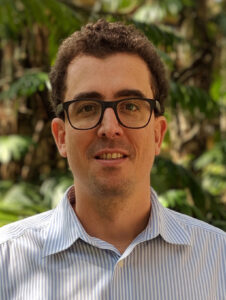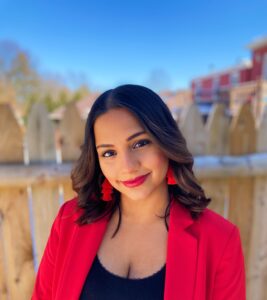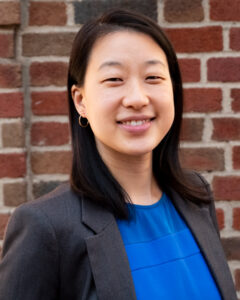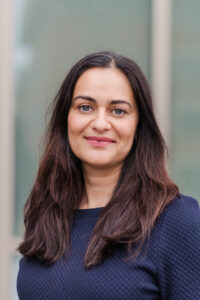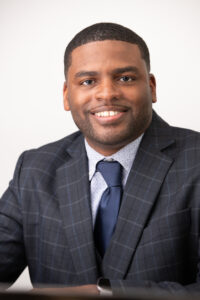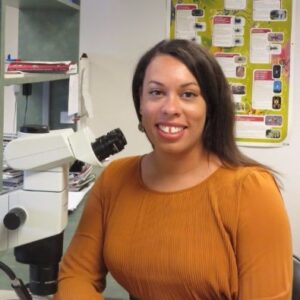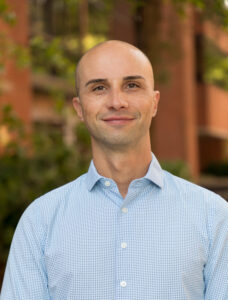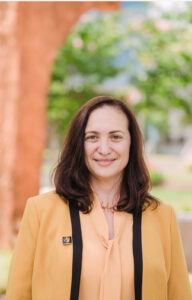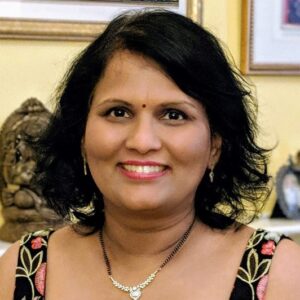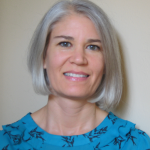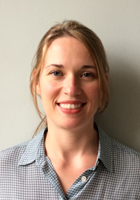
UMBC is pleased to have an institutional membership with the NCFDD, an independent professional development, training, and mentoring community of over 71,000 graduate students, post-docs, and faculty members. The NCFDD is 100% dedicated to supporting academics in making successful transitions throughout their careers, offer on-campus
workshops, professional development training, and intensive mentoring programs.
We encourage you to claim your membership by going to https://members.ncfdd.org/institutions/umbc. Once you complete the registration process and receive the “welcome email” from NCFDD, you can register for an upcoming webinar on the events calendar, sign up for the upcoming 14-Day Writing Challenge, and visit the community and introduce yourself in one of the rank spaces.
IM Resource NCFDD IM Flyer 2025
Foundational NCFDD Curated Resources
Faculty Success Program
The Faculty Success Program is all about learning the secrets to increasing your research productivity, getting control of your time, and living a full and healthy life beyond your campus. As the NCFDD’s signature program, the Faculty Success Program is specifically designed to transform your personal and professional life.
The program is for tenure-track and tenured faculty who are looking for the perfect combination of empirically tested methods to improve research productivity through intense accountability, coaching, and peer support and to propel their work-life balance and personal growth to a whole new level.
Hear from some of our previous participants:
“NCFDD has been essential to my career development as a postdoctoral fellow and now as an assistant professor at UMBC. I was sponsored to complete the Faculty Success program in Spring 2024, and it has transformed how I approach my career and has given me the tools I need to feel confident on the tenure track. Not only do I feel more productive, but I have learned to generate data to keep me focused on my priorities. NCFDD has helped me realize that some of the challenges I face as a new faculty member are common and has provided me with tangible skills to navigate them daily.”
-Dr. Mercedez Dunn-Gallier, CAHSS
“The FSP Program offers essential resources for building a successful career as a university professor. I had already advanced beyond the assistant professor level, yet, I found the experience incredibly valuable. Before participating, I considered myself organized and focused, but I had so much to learn! The program taught me how to protect my schedule, ensuring a healthy work-life balance. At the same time, I increased my research productivity by prioritizing tasks that truly matter. To this day, I continue to meet with my small group and prepare my strategic plan, which has become an integral part of my routine. Additionally, I now share the strategies I learned with my PhD students and postdocs. The summer I dedicated to the FSP program transformed my career. I highly recommend you attend this program too!”
-Dr. Henrique Barbosa, CNMS
“The NCFDD Faculty Success Program gave me the tools to become more efficient, organized, and less overwhelmed. I learned how to prioritize all the responsibilities of a faculty position while honoring my personal values and goals. I especially appreciated the practical skills-building, such as creating semester plans and time blocking, and I continue to use those methods. The best part is that the program taught me how to accomplish more in less time, giving me more free time! Additionally, I formed a community of peers, and we are still in touch. I highly recommend the program to all junior faculty!”
-Dr. Sameera Nayak, CAHSS
“I’m thankful UMBC supported my enrollment in the Faculty Success Program. I learned many skills and strategies that helped me navigate my writing, research, teaching, and service as an early career faculty member. It’s been more than a year since I completed the program and I still meet with my group mates on a monthly basis, create a strategic plan at the start of each semester, and continue to learn about and hone my writing process.”
-Dr. Sophia Hwang, CAHSS
“I would highly recommend the program to faculty at any stage in their career. I found the combination of practical advice on how to establish a daily writing habit one of the most useful components of the program. But I also really appreciated the emphasis on establishing work-life balance, building a realistic schedule, and some of the meta-career reflection that the program asks you to do. As someone invested in building equity for faculty of color in higher education, I found that the network of support that NCFDD offers to be an unparalleled resource and one that I will draw upon throughout my career.”
-Dr. Tamara Bhalla, CAHSS
“This program was incredibly transformative and insightful. Within my small group, I was able to have deep conversations about my goals and the strategies necessary to achieve them. I was also able to forge valuable relationships with other scholars which–given the isolation characteristic of the COVID-19 pandemic–became a lifeline for building a sense of community. This program helps you figure out how to be a better scholar and sharpen your vision of what’s possible.”
-Dr. Earl Brooks, CAHSS
“The FSP codified a number of best practices for new faculty that I realized I was already using, such as weekly personal planning sessions and timing my daily writing. I combined these tactics with new approaches, including productivity analysis and mapping out a list of my mentors order to identify my mentoring needs. These methods allow me to develop data on my own performance, and I believe they will help me to be a better and more balanced writer, academic, and person.”
-Dr. Mercedes Burns, CNMS
“Before joining the NCFDD Faculty Success Program (FSP), I was already an organized person and my research productivity was consistent with my department’s expectations. I was not sure about what I was going to gain from the program, but I was hoping to achieve a better balance between work and wellness. The program focuses on activities that lack in-built accountability, such as research and wellness. The small groups with coaches are friendly “safe spaces” to share, learn and encourage. I learned principles and practices that have helped me achieve professional goals without feeling overwhelmed by the middle of every semester.”
-Dr. Felipe Filomeno, CAHSS
“I believe this program helped me to stay on track and maintain the accountability to continue working toward my professional goals for the summer. For example I: a) completed my Research and Teaching Statement for my Dossier, b) completed analysis and have a draft of a paper for a Sociological Journal- Contexts, which will be submitted in the next couple of weeks, c) Chaired a completed Masters paper, d) graded an LLC student’s comps, e) presented at conferences, and f) collaborated on a grant that was submitted with senior faculty in the School of Public Policy and Psychology. I am extremely for grateful for the generous support that UMBC has provided in allowing me the chance to participate in the FSP.”
-Dr. Loren Henderson, CAHSS
“I found the NCFDD Spring 2020 Faculty Success Program to be very useful to learn new techniques for improving my writing discipline and identifying challenges associated with writing productivity. This course helped me participate in a community of fellow academics from a similar background in other Universities and appreciate the importance of a strong peer network for career success. I now understand my research strengths and challenges better and that for me was the most valuable benefit of this training.”
-Dr. Karuna P. Joshi, COEIT
“Participating in the FSP program was a great experience. The weekly calls with my small group were very enlightening and I gained a lot hearing different perspectives on the weekly topic. My group had become quite close by the end of the semester; so much so that we have stayed in touch and continue to have monthly calls. In addition to the discussions, the weekly activities helped reinforce research and writing best practices by explaining the psychology behind typical avoidance behaviors as well as providing practical techniques and strategies for conquering them.”
-Dr. Andrea Kleinsmith, COEIT
“I found the NCFDD Success Program to be really transformative. It completely changed my thinking about how I organize my work life, how to achieve work/life balance, and how to manage a large research group. It should be absolutely required for every assistant professor! I am still in contact with my mentoring group and we’ve continued to work on our goals together.”
-Dr. Eileen Meyer, CNMS

